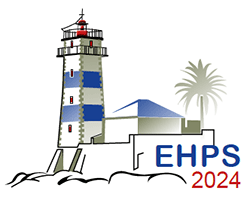Half Day Workshops
EHPS 2024 will accommodate three (3) Half Day workshops, which will be held on Tuesday 3rd of September 2024. Conference attendees who wish to participate in these workshops will be required to register and pay the appropriate fee. Details on the workshop registration process can be found at https://2024.ehps.net/registration. Please note that this year the Half Day workshops, as well as the Full Day workshops will be held in parallel. So you can register to participate in just one workshop, Half or Full Day.
Equality, Diversity, and Inclusion (EDI) in Health Psychology Research
Experience mapping in health psychology research: discovering embodied
and embedded experiences in the lived space
The Behavioural Science Approach to Realist Reviews/Evaluations (BARR/E)
Equality, Diversity, and Inclusion (EDI) in Health Psychology Research
Objectives:
This workshop on Equality, Diversity, and Inclusion (EDI) in Health Psychology Research is a valuable opportunity to foster awareness, understanding, and actionable steps toward a more inclusive and equitable research environment
Participants will gain an increased understanding about EDI in health psychology research and culture.
Participants will gain insight into identifying and addressing biases in their own research and recognise the potential impact of their work on diverse populations.
Participants will have opportunities to critically consider barriers and facilitators to including EDI considerations their own research and funding bids.
Participants will develop skills and knowledge to implement EDI considerations into their research and funding applications.
Activities:
Understanding EDI in Health Psychology research. (45 minutes):
Presentation: Provide an overview of EDI concepts, including equality, equity, diversity, and inclusion.
Interactive Discussion: (20 minutes)
Why does EDI matter in Health Psychology research? Engage participants through small group work to discuss the importance of EDI in health psychology research practice and culture. Present to main group.
Inclusive Research Practices (45 minutes):
Presentation: Highlight best practices for inclusive research design, participant recruitment, and data analysis.
Q&A Session: Address participants’ questions and concerns.
Small group work: barriers and facilitators to EDI in research practice and culture.
Networking session: Opportunities to collaborate, share ideas over coffee.
Action Planning (30 minutes):
Group Activity: Participants brainstorm actionable steps to promote EDI in their research.
Commitment Pledge: Each participant commits to specific actions.
Closing Remarks and Next Steps (15 minutes):
Recap key takeaways.
Encourage ongoing learning and implementation.
Intended Participants:
Open to anyone interested in equality, diversity and inclusion in health psychology research and research culture.
Maximum number of participants for the workshop:
50
Convenors:
Joanna Semlyen, University of East Anglia, United Kingdom
Dr Joanna Semlyen (responsible for workshop) is PI for Wellcome Trust funded grant to develop inclusive and diverse research culture Increasing Diversity & Equality of Access to Inclusion (IDEA) study at University of East Anglia, UK and PI for the study Equality, Diversity and Inclusion inTo research (EDIT) study, a mixed methods study to develop toolkit for EDI and Research. Dr Semlyen is Associate Dean for ED&I in the Faculty of Health and Medicine and Associate Professor of Psychology and Medical Education. She publishes in health inequalities and anti discrimination practice.
Leanne Tyson, University of East Anglia, United Kingdom
Dr Leanne Tyson is lead researcher for Equality, Diversity and Inclusion inTo research (EDIT) a mixed methods study to develop EDI Guidelines for EDI and Research. Dr Tyson has published in the field of health inequalities and tackling discrimination in health settings.
Experience mapping in health psychology research: discovering embodied and embedded experiences in the lived space
Objectives:
Lived experiences of health and illness are deeply rooted in our bodies and the physical spaces that are significant to us: they are embodied within us and embedded in our environment. Embodied and embedded experiences encapsulate the complexity of a person’s motions, self-regulation and relationship processes encompassing health and illness.
First, we developed the Emotional Map of the Home interview procedure, which allowed us to investigate the self-regulation processes of family members within their homes. Building upon the foundations of systemic thinking and environmental psychology, we have further advanced the concept of experience mapping (experiMAP).
Accordingly, the workshop aims
to present the scientific background behind the experiMAP based qualitative interview methods.
to help the participants acquire basic skills in using experiMAP procedures for research and practice.
Activities:
During the workshop, participants will have the opportunity to:
engage in firsthand experience with the experiMAP-based interview protocol as it is employed in qualitative health research and clinical practice;
explore real-life study examples and gain practical information on applying experiMAP-based procedures;
develop their ideas for using the experiMAP approach in their professional practice.
By the end of the workshop, participants will have a solid understanding of the theoretical underpinnings, practical implementation, and potential applications of experiMAP in their qualitative health psychology research and clinical practice.
Participants:
Researchers and practitioners in health psychology
Maximum number of participants for the workshop:
Convenors:
Viola Sallay, University of Szeged, Hungary
The Behavioural Science Approach to Realist Reviews/Evaluations (BARR/E)
Objectives:
By the end of the workshop, participants will be able to:
